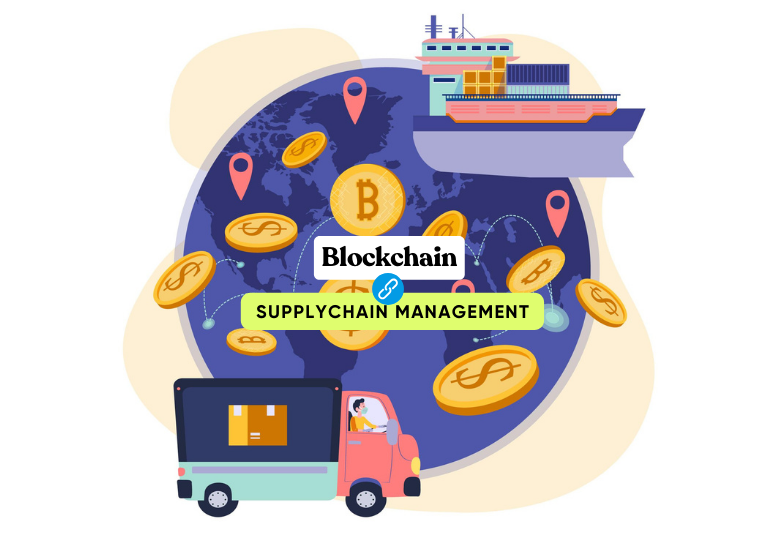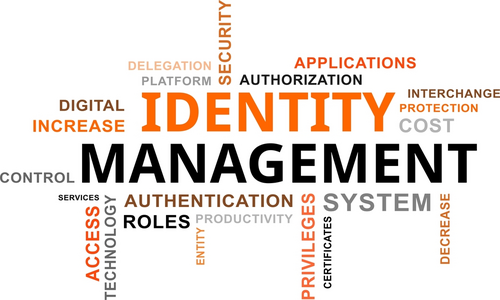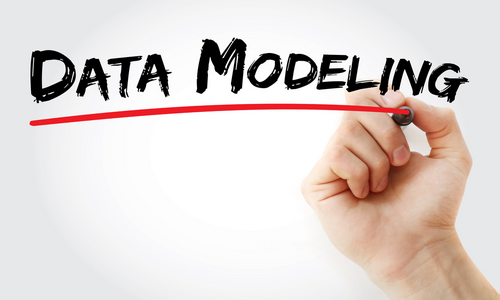Managing Supply Chains efficiently is a cornerstone of today’s globalized economy. It provides for the scheduled and economical transfer of things from raw materials to the final buyers. On the other hand, vintage supply chains face barriers such as lack of transparency, inefficiencies resulting from manual processes, and exposure to fraud. For the last few years, blockchain technology has been acknowledged as a phenomenon that has the potential to change supply chain management in an unprecedented manner. Based on its capabilities of providing distributed ledgers and immutable data records as core features. Blockchain provides a secure and transparent platform for collaboration and sharing of information among all stakeholders. Using this technology within the supply chain has become the main trend in 2024, contributing to system defragmentation, higher reliability, and better competitiveness.

Jump ahead to
The Rise of Blockchain in Supply Chain Management
The rise in blockchain technology is placing supply chain management on a new level due to the supervising and transparent platform for cooperation. Imagine an electronic process of journalizing, such as a stand-on spreadsheet that can be seen by all the members of a supply chain. This data structure can be compared to a blockchain, a widely used Distributed Ledger Technology. This is where data is stored and adjusted throughout a network of computers. The most important aspect is the information security of the entries, provided by ciphering. This is what makes data irreversible and immutable (unchangeable). The distributed nature of the ledger in the supply chain can track the movement of goods from their starting point to their point of arrival. Each member of the supply chain, which starts from suppliers and reaches retailers, can do these updates in full security.
Benefits for Supply Chains
Such a level of transparency is beneficial in several ways, which it is now possible to take advantage of.
Enhanced traceability
In addition to the supply chain, blockchain also demonstrates its ability to make real-time goods traceable, increasing visibility into its journey. Hence, this might be crucial for perishable goods and for those that require special conditions of care.
Improved trust and collaboration
A unique shared ledger that is open for all to see would ensure that all players in the transaction could have confidence in the data. This gives an advantage on the longer-term side for improving cooperation and communication throughout the entire supply chain.
Increased efficiency and reduced costs
The transparency that the system provides results in the streamlining of processes, the reduction of errors, and time wasted on the manual verification of all data. It does, to a great extent, depend on the budget because the result is probably persistence.
Mitigated risk of fraud and counterfeiting
The impossibility of destroying or falsifying data is the most crucial characteristic of blockchain in the world of data. This inhibits fraud as well as the counterfeiting of the products; hence, the underlying product also obtains integrity.
Blockchain in Supply Chain Management – Key Applications

Blockchain revolutionizes supply chain management by providing a secure data platform for real-time product and corporate data tracking. Imagine an information database available to all parties that simultaneously keeps an unalterable digital record of each of the transaction activities. This underlying concept that blockchain incorporates the model of distributed ledgers with immutable data lies at the core of the blockchain power in supply chains.
Here’s how blockchain is driving real-world improvements
Provenance tracking
Blockchain is able to record a product’s history from source to ultimate consumer destination. This transparency is an ethical source, and it is also the guarantor of authenticity. As an example, a group of major diamond dealers will profit from blockchain technology and manage to track down diamonds, which previously caused problems due to the number of conflict minerals in supply chains.
Inventory management
Advanced technology like Blockchain gives product visibility in real-time across the whole chain of supply. It allows companies to adjust inventory levels, remove waste, and ensure the products are on hand when needed. World’s leading pharmaceutical companies are said to use Blockchain as a means to track medicines in transit globally. This, in turn, will reduce stockouts and ensure in-time delivery of essential drugs.
Smart contracts
Smart contracts, which are self-executing contracts generated by codes, are in use in the supply chain to do tasks autonomously. It straightens the procedures and eliminates any manual errors. For instance, a big farming cooperative uses smart contracts for automatic payment to the farmers when they deliver their crops with success, which makes the process more efficient and improves cash flow for all parties.
Quality assurance and compliance
The challenges of maintaining quality control as well as complying with the relevant regulations are difficult. Blockchain technology assures a secure and comprehensive record of all important information regarding the supply chain. This is helpful in product recalls, as it speeds up the problem identification and resolution cycle. Multinational food processing companies are believed to apply blockchain technology to keep track of food products from farm to table so that regulations are obeyed and ultimately consumers are safe.
Challenges and Considerations for Blockchain Adoption
Though there are various illustrative uses for Blockchain in Supply Chain Management, adopting the technology has several associated challenges. Integrating blockchain with the existing legacy systems in an organization might prove very complex for what it needs to accomplish, requiring extensive hardware and software upgrades. Besides, scalability constraints and relative slowness on certain blockchain platforms can restrain them from taking the primary place in supply chain planning due to the significant number of items. In addition, the dynamic regulation of handling blockchain presents legal frameworks for businesses that do not move forward due to the evolving legal systems.
At the same time, ongoing breakthroughs make these challenges less intractable. The growing complexities between blockchain and conventional settings represents an interoperability solution. Developers continue to seek scalability and transaction speed improvement on blockchain platforms, where they are mainly involved. The governing bodies are studying the blockchain and are coming up with draft papers for the regulation of the industry by allowing players to take part in the streamlined process. This is indeed opening the doors to wider applications of blockchain in the future.
Future of Blockchain in Supply Chain
The potential of blockchain in supply chain management remains undeniable in light of some adversities. Maturation of this technology is paving the way forward for that, as integration barriers will fall. Technological developments and enhancements in scalability and transaction speeds will help make blockchain much more adaptive to the diverse needs of supply chains. Subsequently, the emergence of clearer regulations would pave the way for increasing the acceptance rate of these emerging technologies. Fundamentally, blockchain will help in instilling novel standards. Thus enables great levels of transparency, collaboration, and efficiency across global supply chains.
Conclusion
In this era blockchain is not merely a concept; rather, it is a disruptive emerging force, set to remodel supply chain management completely. It enables businesses to have a secure and transparent channel for cooperation, through which traceability, efficiency, and trustworthiness are increased all over the supply chain ecosystem. Nonetheless, though the challenges persist, with time, new developments and the increasing priority of regulatory clarity in the industry mark the road to a future where blockchain disrupts the established processes of global goods distribution as we know them. Professionals keen on learning about this advanced technology can take up Blockchain Training program and explore its realm.



